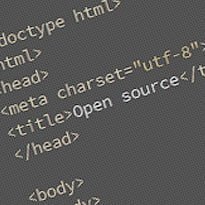UCLH deploys open source patient list
- 14 April 2014

University College London Hospitals NHS Foundation Trust has rolled out an open source patient list web service.
The system, from Open Health Care UK is called eICID, for Electronic Clinical Infections Database, and is being used by the infectious diseases, microbiology, and immune teams across the trust to help look after patients and support research and audit.
The eICID has been developed in partnership with several trust clinicians and has replaced printed-out word documents they used to keep track of patients.
Dr Vanya Gant, a consultant microbiologist and the trust's director for the infection division, told EHI that previously, decisions on patients were recorded on paper records, which he said “was fine for clinical purposes, but not maximising our ability to utilise routine clinical data to feed into improving clinical care”.
“The system allows me to rapidly review and document clinical decisions about large number of patients who have complex infection related issues,” se said.
“This week my ward round was 70 patients but using this interface I was able to review these patients with my haematology colleagues clearly and in only two hours.”
The code for the system is open source and was built on the Opal open source framework by Open Health Care UK, the company behind NHS Hack Day. The series of not-for-profit events, taking place several times a year, brings together clincians, developers and other "NHS geeks" to develop software for the NHS and several open source apps and systems has sprung out of these days.
Carl Reynolds, chief executive of Open Health Care UK, said it had been a great opportunity to work with the clinicians at University College London Hospitals.
"We're proud to be demonstrating the value of modern user-focused design, open source, and open governance in an NHS IT service," he said.
Dr Michael Marks, a specialist registrar at the trust’s Hospital for Tropical Diseases is one of the doctors who have been involved in the development of the system.
He said that the goal was to “significantly improve” the way doctors entered information.
“It aims to replicate an interface that junior doctors, who do most routine data entry, are familiar with whilst simultaneously helping the hospital and the division achieve its strategic aims.
“We started by looking at the current word document/paper forms that people were using and had to work out what data is required for day to day work but importantly also what data is required to inform service development and research,” he said and added that the next step is to get mobile access to the system.
“It’s hosted on a secure UCLH server behind a firewall. It’s currently accessible via desktop computers but the roadmap contains plan to go mobile. But before that, we need to ensure mobile devices meet infection control requirements, as many of our patients our immunocompromised.”
Dr Marks added that the feedback from clinicians had been positive so far, and that other departments have shown interest in expanding and customising the software in their own settings.
The deployment of the eICID project was partly funded by the National Institute for Health Research Biomedical Research Centre at University College London Hospitals NHS Foundation Trust and University College London.




